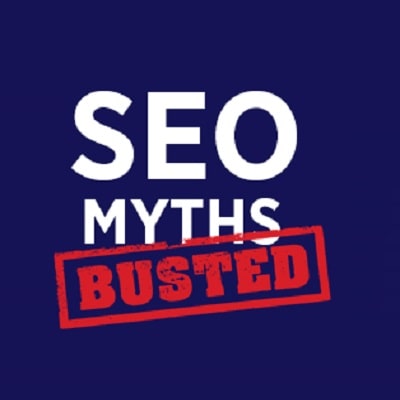
10 Common Myths!
SEO (Search Engine Optimization) is a critical aspect of digital marketing. However, it’s often misunderstood, leading to the creation of various myths. Here, we’ll debunk the top 10 common myths surrounding SEO.
SEO is a One-Time Task: SEO is an ongoing process, not a one-off task. It requires regular optimization and adjustment due to ever-changing search engine algorithms and competitive landscapes.
Keyword Stuffing Improves Rankings: Overloading your content with keywords (keyword stuffing) can actually harm your SEO, as search engines view it as spammy behavior.
Backlinks are More Important Than Content: Quality content is as crucial as backlinks for SEO. Without relevant, high-quality content, gaining and maintaining high rankings is challenging.
Meta Tags Don’t Matter: While not as influential as they once were, meta tags still contribute to SEO. They help search engines understand your content and improve click-through-rates.
More Pages Mean Better Rankings: The quality of content on your pages matters more than quantity. Creating unnecessary pages can dilute your site’s relevance and authority.
SEO is All About Rankings: High rankings are important, but they’re not everything. SEO also focuses on improving visibility, user experience, and conversion rates.
Social Media Doesn’t Impact SEO: Social signals may not directly impact rankings, but they indirectly influence SEO by driving traffic and improving online visibility.
Image Optimization is Unnecessary: Image optimization plays a crucial role in page load speed (an SEO factor) and provides an opportunity to include relevant keywords in the image’s alt text.
Local SEO Doesn’t Matter for Small Businesses: Regardless of size, local SEO is vital for businesses to attract and retain local customers. It improves visibility in local search results and Google Maps.
SEO Can Deliver Immediate Results: SEO is a long-term strategy. It usually takes months to see significant results due to the time it takes for indexing and ranking changes.

Why Do Myths Appear?
SEO myths often arise due to outdated practices examining the positive results of Luckland casinos, misinterpretations or misinformation. Because search engine algorithms are constantly changing, strategies that have worked in the past may become obsolete but continue to circulate as “best practices”, creating misconceptions.
How Can an SEO Specialist Dispel the Myth and Find a Solution?
SEO specialists can combat myths by staying updated with changes in SEO best practices and communicating these updates to their clients and team. This involves regularly reading reputable SEO resources, attending industry conferences, and following search engines’ official blogs. Moreover, specialists should employ data-driven strategies, using analytics to determine what works and what doesn’t, and adapt their strategies accordingly.
Conclusions
Understanding SEO is crucial for any digital marketing strategy, but it’s equally important to differentiate between fact and myth. By debunking common SEO myths, we can focus on what truly matters in SEO: creating high-quality, relevant content, optimizing user experience, and keeping up-to-date with the ever-evolving search engine algorithms.
